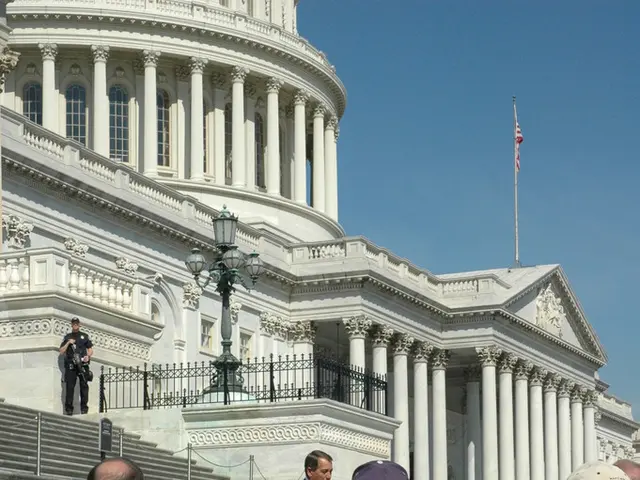STRUGGLING STUDENT LOAN BORROWERS FACE COLLECTION WORRIES
Potential Student Loan Collections may Worsen Borrowers' Financial Conditions in the Future
Millions of student loan borrowers could be in for a tough time as collection efforts will soon ramp up. The Department of Education plans to restart collections for defaulted borrowers this summer, potentially leading to wage garnishment for some.
As many as 5 million borrowers have already defaulted on their federal student loans, and the department expects another 4 million to default soon. From May 5 onwards, collections will be resumed, leading to involuntary wage deductions for some borrowers.
The past five years have been turbulent for student loan borrowers, with pandemic-related delays, court cases, and changes in administration causing confusion. Now, looming collections have some borrowers worried.
One frustrated borrower expressed their feelings on Reddit, "I'm not against paying back my loans, I took them out and went to school. But without reasonable repayment options, it's just really suffocating for many borrowers."
COLLECTIONS MAY STRAIN FINANCIAL LIVES
Borrowers who haven't made payments for 270 days could see up to 15% of their income, tax refund, or federal benefits seized and sent to their loan service provider starting this summer. This could create financial problems for borrowers who already struggle to pay their debt, exacerbated by the fact that 36% of consumers can't pay all their bills on time, according to a study by Achieve.
Student loan borrowers may also face difficulties paying other debts as a result of collections. In a report, Moody's Analytics economist Shandor Whitcher suggested that many borrowers may have accrued more debt than they can handle during the moratorium, and collections could place student debt lower in the payment hierarchy.
According to Achieve, approximately 37% of student loan borrowers who missed a payment on any type of debt did so because they ran out of money.
CREDIT HITS MAY INCREASE NEW DEBT COSTS
The average FICO score dropped in February, with a significant contribution from around 2.7 million delinquent student loan borrowers whose missed payments were reported to credit bureaus for the first time in five years. The Federal Reserve Bank of New York's research suggests that more than 9 million borrowers with delinquent student loans could see their credit scores plummet by up to 171 points.
Lower credit scores often mean higher interest rates on new loans and reduced access to credit, making it harder for borrowers to take out new debt.
Defaulted borrowers still have options to avoid the adverse effects of wage garnishment and collections. They can set up a repayment plan, request a loan rehabilitation plan, consolidate their loans, apply for an income-driven repayment plan, or seek professional assistance. Early action may help prevent severe consequences like wage garnishment and tax offsets.
Manage your student loans effectively: Sign up for our newsletter
Try our partner Pepperstone for CFD trading
Join Now
Sources:
- Education Department to restart student loan collections
- Student loan borrowers worried about rise in collections
- Fix Student Debt
- Achieve Financial Wellness
- Federal Reserve Bank of New York: Child Support Collection Offset Program
- The resumption of student loan collections this summer could lead to the seizure of up to 15% of a borrower's income, tax refund, or federal benefits, potentially straining their personal-finance and making it difficult for them to manage other debt payments.
- For many student loan borrowers, collections could push student debt lower in the payment hierarchy, making it difficult to pay off other existing debts, which might exacerbate financial troubles.
- Delayed and missed student loan payments reported to credit bureaus over the past few years could lower credit scores, resulting in higher interest rates on new loans and reduced access to credit, making it more challenging for borrowers to take on new personal-finance or career-development endeavors.








